What is Coronavirus?
According to the WHO, Coronavirus is a family of viruses that cause illnesses ranging from the common cold to more severe diseases such as severe acute respiratory syndrome (SARS) and the Middle East respiratory syndrome (MERS).
These viruses were originally transmitted from animals to people. SARS, for instance, was transmitted from civet cats to humans while MERS moved to humans from a type of camel.
Several known Coronavirus are circulating in animals that have not yet infected humans.
The name Coronavirus comes from the Latin word corona, meaning crown or halo. Under an electron microscope, the looks like it is surrounded by a solar corona.
The novel Coronavirus, identified by Chinese authorities on January 7 and since named SARS-CoV-2, is a new strain that had not been previously identified in humans. Little is known about it, although human-to-human transmission has been confirmed.
Where did the virus originate?
Chinese health authorities are still trying to determine the origin of the virus, which they say likely came from a seafood market in Wuhan, China where wildlife was also traded illegally.
On February 7, Chinese researchers said the virus could have spread from an infected animal species to humans through illegally-trafficked pangolins, which are prized in Asia for food and medicine.
Scientists have pointed to either bats or snakes as possible sources of the virus.
What are the symptoms?
According to the WHO, signs of infection include fever, cough, shortness of breath and breathing difficulties.
In more severe cases, it can lead to pneumonia, multiple organ failure and even death.
Current estimates of the incubation period - the time between infection and the onset of symptoms - range from one to 14 days. Most infected people show symptoms within five to six days.
However, infected patients can also be asymptomatic, meaning they do not display any symptoms despite having the virus in their systems.
Read more on what the Coronavirus does to your body if you catch it
here.
How deadly is it?
With more than 8,600 recorded deaths, the number of fatalities from this new Coronavirus has surpassed the toll of the 2002-2003 SARS outbreak, which also originated in China.
SARS killed about 9 percent of those it infected - nearly 800 people worldwide and more than 300 in China alone. MERS, which did not spread as widely, was more deadly, killing one-third of those infected.
While the new Coronavirus is more widespread than SARS in terms of case numbers, the mortality rate remains considerably lower at approximately 3.4 percent, according to the WHO.
Where have cases been reported?
Since March 16, more cases were registered outside mainland China than inside, marking a new milestone in the spread of the global pandemic.
Deaths have been reported in several countries, with Bahrain recording the first fatality in the Gulf on Monday.
The virus has spread from China all around the world, prompting the WHO to designate the COVID-19 outbreak as a pandemic
Human-to-human transmissions became evident after cases were recorded with no apparent link to China.
Read about which countries have confirmed cases
here.
What is being done to stop it from spreading?
Scientists around the globe are racing to develop a vaccine but have warned it is not likely one will be available for mass distribution before 2021.
Meanwhile, Chinese authorities have effectively sealed off Wuhan and placed restrictions on travel to and from several other cities, affecting some 60 million people. Other countries have since followed suit with total lock downs, closing schools, restaurants, bars, and sports clubs, and also issuing mandatory work-from-home decrees.
International airlines have cancelled flights the world over. Some countries have banned non-citizens from entering their territories, and several more have evacuated their citizens from abroad.
How does it spread?
There is currently no vaccine to prevent Coronavirus disease 2019 (COVID-19). The best way to prevent illness is to avoid being exposed to this virus. The virus is thought to spread mainly from person-to-person.Between people who are in close contact with one another (within about 6 feet). Through respiratory droplets produced when an infected person coughs or sneezes. These droplets can land in the mouths or noses of people who are nearby or possibly be inhaled into the lungs.
What are the preventive measures that can be taken to Protect yourself?
Take steps to protect yourself
Clean your hands often
- Wash your hands often with soap and water for at least 20 seconds especially after you have been in a public place, or after blowing your nose, coughing, or sneezing.
- If soap and water are not readily available, use a hand sanitizer that contains at least 60% alcohol. Cover all surfaces of your hands and rub them together until they feel dry.
- Avoid touching your eyes, nose, and mouth with unwashed hands.
Avoid close contact
- Avoid close contact with people who are sick.
- Put distance between yourself and other people if COVID-19 is spreading in your community. This is especially important for people who are at higher risk of getting very sick.
Take steps to protect others
Stay home if you’re sick
- Stay home if you are sick, except to get medical care.
Cover coughs and sneezes
- Cover your mouth and nose with a tissue when you cough or sneeze or use the inside of your elbow.
- Throw used tissues in the trash.
- Immediately wash your hands with soap and water for at least 20 seconds. If soap and water are not readily available, clean your hands with a hand sanitizer that contains at least 60% alcohol.
Wear a face-mask if you are sick
- If you are sick: You should wear a face-mask when you are around other people (e.g., sharing a room or vehicle) and before you enter a healthcare provider’s office. If you are not able to wear a face-mask (for example, because it causes trouble breathing), then you should do your best to cover your coughs and sneezes, and people who are caring for you should wear a face-mask if they enter your room.
- If you are NOT sick: You do not need to wear a face mask unless you are caring for someone who is sick (and they are not able to wear a face-mask). Face-masks may be in short supply and they should be saved for caregivers.
Clean and disinfect
- Clean AND disinfect frequently touched surfaces daily. This includes tables, doorknobs, light switches, counter-tops, handles, desks, phones, keyboards, toilets, faucets, and sinks.
- If surfaces are dirty, clean them: Use detergent or soap and water prior to disinfection.
Is this a global emergency?
Yes, this outbreak is a global health emergency, the who said on January 30th, raising the alarm further on March 11 when it declared the crisis a Pandemic.
The international health alert is a call to countries around the world to coordinate their response under the guidance of the WHO.
There have been five global health emergencies since 2005 when the declaration was formalized: swine flu in 2009, polio in 2014, Ebola in 2014, Zika in 2016 and Ebola again in 2019.
•
Source: | Aljazeera | WHO | CDC
•
••
Connect with us on all our social media platforms: @imusttalktv (Facebook,
Instagram, Twitter & YouTube).
•
SHARE THIS STORY/ARTICLE!
POUR YOUR HEART OUT BY DROPPING A COMMENT!
•
•
Do you have a Business, Brand, Event or Story you want to share with the
world?
Let's help you to publicize and promote your various Businesses, Brands and
Events.
Let's share your Art, Creativity, Craft or story with the world.
•
Contact Us:
•
Call/Whats-app : +234 90 1796 7196, +234 80 6168 4712.
Email:
imusttalkmedia@gmail.com ||
imusttalk.tv@gmail.com
•
Send us a message now! >>Click Here<<
•
•
Kindly Share This Blog Post/Story/Article/Message by clicking on the
Whats-app share button below.






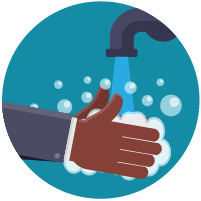
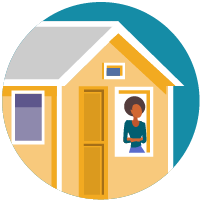
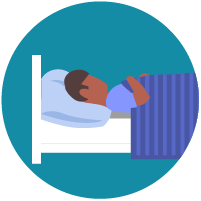
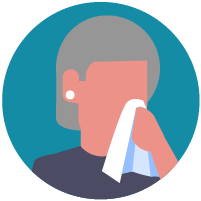
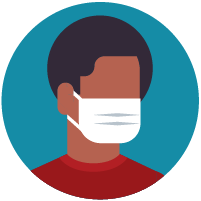
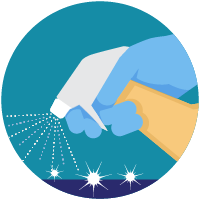

















No comments:
Post a Comment